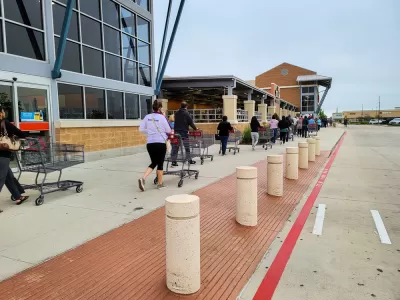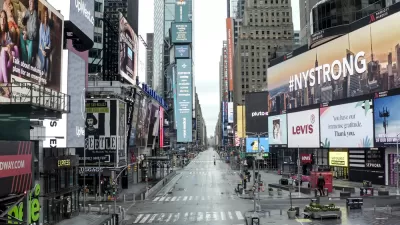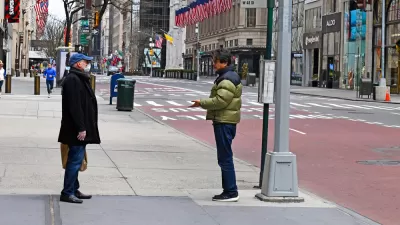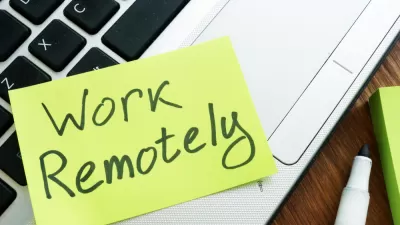In this interview with Emily Badger of the New York Times, Natalie Moore of WBEZ Chicago, and Amanda Kolson Hurley of Bloomberg Businessweek, Slate's Henry Grabar asks about the future viability of America's cities and suburbs in a time of COVID-19

"In the early days of the pandemic, there were a number of articles speculating about: Is COVID a sort of urban disease? Is this an urban phenomenon? Is it because of density? Is it because of the subway? And from the beginning, that struck me as the wrong question to ask. In suburbs, whatever level of density and whatever that suburb looks like, people are going to houses of worship, kids are going to school, people are going to the gym, they’re going to Walmart or whatever, they’re going to the grocery store. And actually the more that we’ve learned about how the virus spreads and what the riskiest situations are for becoming infected, the more that kind of city-suburb distinction really breaks down."
FULL STORY: Will COVID Push People Out of Cities for Good?

Planetizen Federal Action Tracker
A weekly monitor of how Trump’s orders and actions are impacting planners and planning in America.

Congressman Proposes Bill to Rename DC Metro “Trump Train”
The Make Autorail Great Again Act would withhold federal funding to the system until the Washington Metropolitan Area Transit Authority (WMATA), rebrands as the Washington Metropolitan Authority for Greater Access (WMAGA).

The Simple Legislative Tool Transforming Vacant Downtowns
In California, Michigan and Georgia, an easy win is bringing dollars — and delight — back to city centers.

The Small South Asian Republic Going all in on EVs
Thanks to one simple policy change less than five years ago, 65% of new cars in this Himalayan country are now electric.

DC Backpedals on Bike Lane Protection, Swaps Barriers for Paint
Citing aesthetic concerns, the city is removing the concrete barriers and flexposts that once separated Arizona Avenue cyclists from motor vehicles.

In These Cities, Most New Housing is Under 441 Square Feet
With loosened restrictions on “micro-housing,” tiny units now make up as much as 66% of newly constructed housing.
Urban Design for Planners 1: Software Tools
This six-course series explores essential urban design concepts using open source software and equips planners with the tools they need to participate fully in the urban design process.
Planning for Universal Design
Learn the tools for implementing Universal Design in planning regulations.
Smith Gee Studio
City of Charlotte
City of Camden Redevelopment Agency
City of Astoria
Transportation Research & Education Center (TREC) at Portland State University
US High Speed Rail Association
City of Camden Redevelopment Agency
Municipality of Princeton (NJ)





























